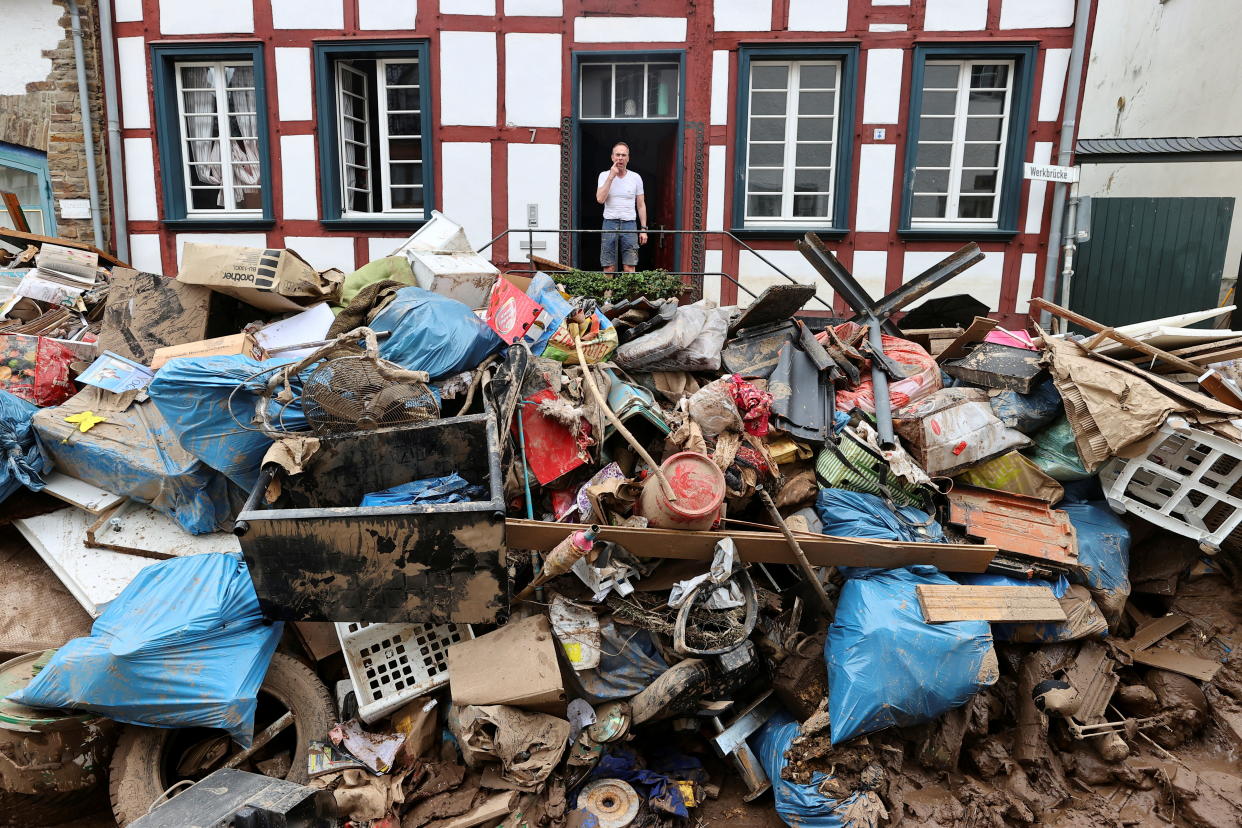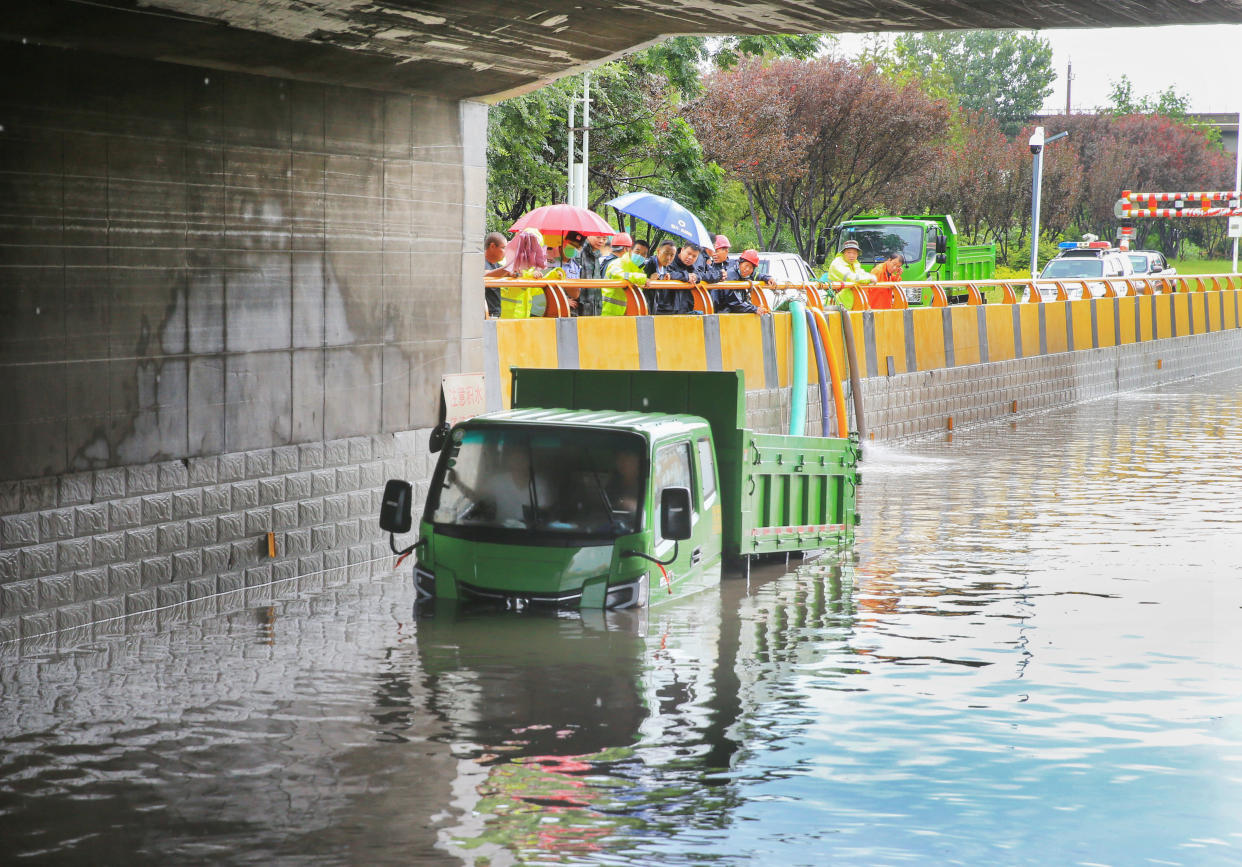The climate change lessons from the flash-flooding disasters in Tennessee and Germany
In a summer that has seen multiple flash-flooding events around the globe, the climate change horror stories have become all too familiar.
A record-breaking 17 inches of rain fell on Waverly, Tenn., on Saturday, unleashing a biblical torrent of water that swept through the area, lifting homes from their foundations, tossing cars aside and killing at least 22 residents.
In July, a record rain also unloaded on parts of Germany over a 12-hour period, and the ensuing flood wrecked villages, killed more than 220 people and injured 700 more.
At least 25 people were killed in Zhengzhou, China, in July after an entire year's worth of rain fell over the course of three days, trapping motorists in underground tunnels and inundating the city's subway system.
In the Indian state of Maharashtra, the intensity of July's monsoon rains was much worse than usual, killing more than 125 people, washing away entire villages and triggering landslides.
As more research is conducted into the causes of these disasters, one thing is becoming clear: Climate change, which has increased the amount of moisture in the atmosphere, is helping to intensify the downpours.
A study released Monday by researchers with the World Weather Attribution project found that July's flash flooding in Germany and central Europe was made up to nine times worse because of climate change.

"These floods have shown us that even developed countries are not safe from severe impacts of extreme weather that we have seen and known to get worse with climate change," Friederike Otto, associate director of the Environmental Change Institute at Oxford University, said in a statement. "This is an urgent global challenge and we need to step up to it. The science is clear and has been for years."
Likewise, the flooding in Tennessee this weekend was part of a larger pattern. While more extreme than other recent events, it was the second deadly flash-flood event in the state this year and follows other notable downpours that have recently overwhelmed infrastructure in such states as Alabama, Arizona, Colorado, Indiana, Louisiana, Michigan, Missouri, Nebraska, New Mexico, New York, North Carolina, Texas, Utah and West Virginia.
Since preindustrial times, the world has warmed by nearly 2 degrees Fahrenheit. For every 1.8 degrees of warming, studies show, the atmosphere holds 7 percent more moisture. When conditions are right, that moisture is unleashed, and that's exactly what is being seen this summer. According to the latest National Climate Assessment, the amount of rain falling during heavy storms in the Southeastern U.S. over the period between 1958 and 2016 has increased by nearly a third.
The exact threat from a deluge of the magnitude experienced in Tennessee is difficult to predict, but with many Americans now contemplating moving to try to game the dangers posed by climate change, flash flooding features prominently on the list of environmental concerns.

"There is no place in the United States where you shouldn't be resetting your expectations about Mother Nature disrupting your life," Roy Wright, president of the Insurance Institute for Business and Home Safety, told the Washington Post. "Climate change has come barging through the front doors of America."
Of course, the same is true of the rest of the world.
"Flooding from intense summer rainfall is going happen more frequently," Jess Neumann, a hydrologist at England's University of Reading, told the Guardian. "No city, town or village is immune to flooding and we all need to take hard action right now if we are to prevent impacts from getting worse in the future."
With global temperatures poised to continue rising as mankind keeps adding greenhouse gases to the atmosphere, the prospect of even more flash-flooding disasters is all but assured. Still, as the most recent report from the United Nations' Intergovernmental Panel on Climate Change makes clear, there is still a chance for the world's governments to band together and forge a plan to keep temperatures from pushing even higher. The next big opportunity for such a pact will come in late October, when world leaders and their representatives will meet at the Glasgow Climate Change Conference.
____
Read more from Yahoo News:


